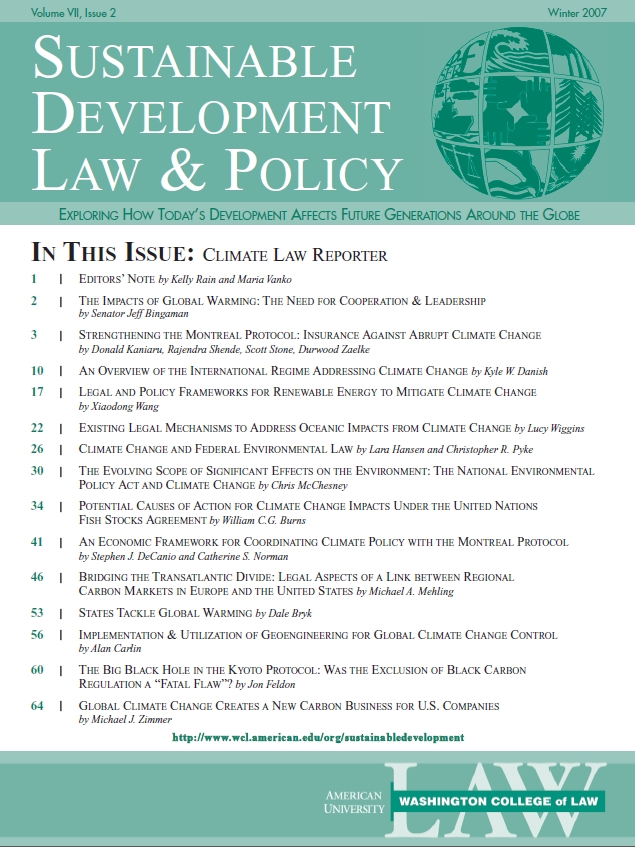Transatlantic Exchange with US Policymakers on the Current Climate and Energy Debate
- Presentation
- Date
-
- Location
- Berlin, Germany and Oslo, Norway
- Panel discussion
Despite President Trump's skepticism regarding the Paris Agreement and his focus on fossil fuels, the interest in the German Energiewende and the role of renewables remains high in transatlantic exchange. Dr. Camilla Bausch, Director of Ecologic Institute, was invited to speak at two high-level events with US policy makers, sharing experiences and discussing the most recent technological and policy developments in energy and climate.
The first event was a transatlantic panel discussion which was part of the 2017 "TransAtlantic Capital to Capital Exchange", a programme co-chaired by U.S. Representatives Jim Renacci (R-OH) and Kathleen Rice (D-NY) and organized by The Ripon Society together with the Franklin Center for Global Policy Exchange. The event took place in the German Reichstag Building in front of a bipartisan group of 20 U.S. Members of Congress and over 100 members of The Ripon Society and the Franklin Center.
Along with Dr. Bausch, the panel featured the German expert, Jochen Flasbarth, State Secretary of the Federal Ministry for the Environment (BMUB) as well as US policy makers, Representative Tim Murphy (R-PA), Representative Tom Reed (R-NY), Representative Sean Patrick Maloney (D-NY), and Representative Carlos Curbelo (R-FL). The event was moderated by Representative Larry Bucshon (R-IN).
This transatlantic panel discussed global and national trends and experiences in the energy sector and in climate policy. Dr. Bausch focused in particular on the German Energy Transition, its goals, achievements and challenges. She embedded the German orientation in global economic and policy trends, highlighting international movement towards cleaner, low carbon solutions.
The overall debate touched a broad range of issues including foreign policy dimensions of the energy debate including the influence of American unconventional oil and gas on the global power game (in particular with respect to Russia) and energy security; the relevance of science to inform policy making; views on climate change, including the vulnerability of states like Florida; the debate on the Paris Agreement, which appears to be supported by many in the US despite President Trumps announcement of withdrawal; the push for cleaner energy globally and in the US, with a highlight on solar and wind power; policy options, with a special focus on carbon pricing and its potential impacts on sectors like steel and cement; and questions of the transition to a low-carbon future including the issue the future of jobs.
The purpose of the TransAtlantic Capital to Capital Exchange is to provide a forum for the exchange of ideas between legislators and policy experts from the United States with their diplomatic allies. This year’s conference in Berlin focused on the bilateral relationship between the US and Germany and comes at a time of political change and redefinition of these relationships. The panel was part of a series of events taking place from 7 August to 11 August 2017.
Energy for America: Opportunities, Challenges and Solutions
The second event featuring Dr. Bausch was organized by the Aspen Institute Congressional Program under the directorship of former U.S. Secretary of Agriculture Dan Glickman. The conference took place from 10 to 14 August in Oslo (Norway), bringing together a bi-partisan group of roughly two dozen Members of Congress and international leaders from business, academia and the political realm. During the conference they discussed the overarching topic of "Energy for America: Opportunities, Challenges and Solutions".
Dr. Bausch highlighted technological and economic trends triggering fundamental changes in the energy sector as well as energy related sectors. She referred, for example, to the recent developments in renewable power solutions, storage options, and digitalization. Moreover, Dr. Bausch looked at investment trends and business opportunities around the world, highlighting in particular the impressive expansion of renewable power technologies while acknowledging that coal still remains a key challenge from a climate policy perspective. She also outlined the international policy framework and political trends, addressing not only the Agenda 2030 with its Sustainable Development Goals, but also the Paris Agreement as well as the outcomes of the latest G7 and the G20 summits. In this context, Dr. Bausch highlighted in particular the G20 Hamburg Climate and Energy Action Plan for Growth. Last but not least, she drew attention to key trends and policy approaches in Germany and the EU to contribute to mutual understanding and policy learning. Her input triggered a vivid debate on the future of energy, technological trends and the best policy options.
The Aspen Institute Congressional Program was established in 1983. It is is a nongovernmental, nonpartisan educational program for members of the United States Congress. The program provides Senators and Representatives with the opportunity to address essential public policy issues with internationally recognized experts and peers.
The two events did not only highlight the continued bipartisan high-level interest in transatlantic exchange and energy and climate issues, but also the continued commitment of Ecologic Institute in this context. The events build on Ecologic Institute’s long history in the transatlantic dialogue and collaboration and is strengthened by the Institute's presence in Washington DC.




